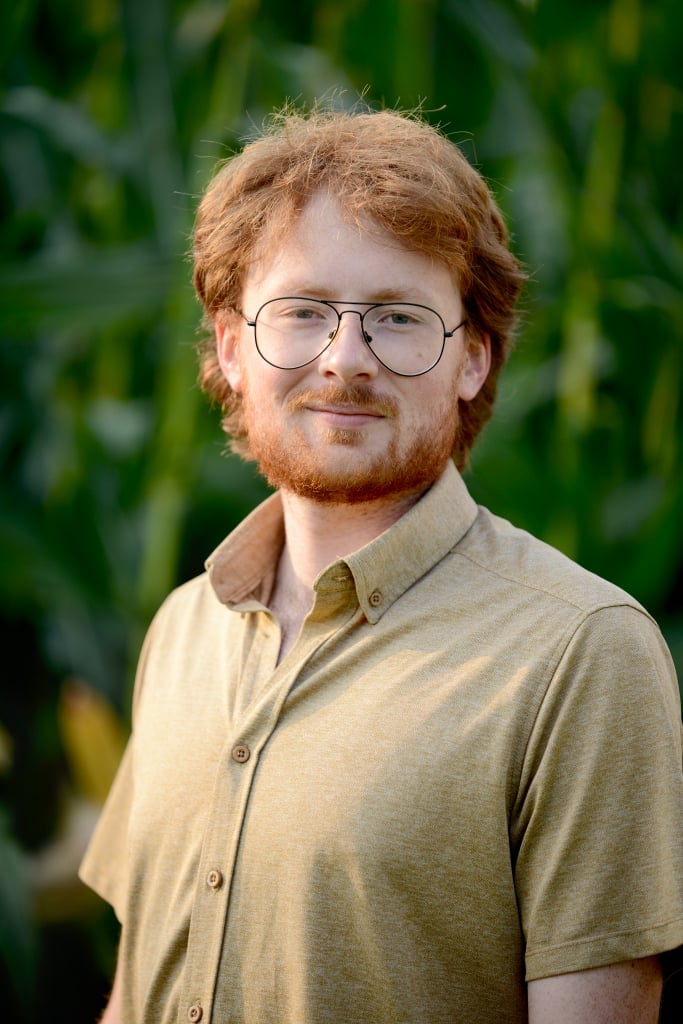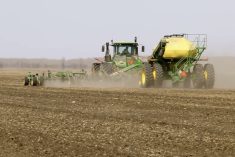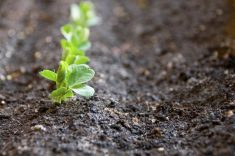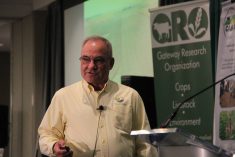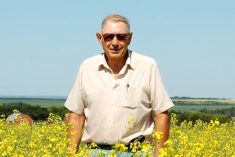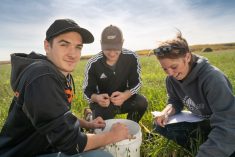The Canadian Alliance for Net-Zero Agri-food (CANZA) is launching a measurement verification reporting (MRV) system for reporting soil carbon.
Nick Betts, CANZA’s managing director, announced the project Monday morning at CANZA’s Seeding New Ground event in Ottawa.
“For the last year, CANZA has been working on understanding how we can measure soil carbon and soil nutrition in a way that works for farmers (at) a lower cost, that can still meet global reporting requirements verification requirements,” Betts said.
The $4 million project is funded by Agriculture and Agri-Food Canada (AAFC) along with partners Maple Leaf Foods and Nutrien Ag Solutions.
Read Also

India slaps 30 per cent import duty on yellow peas
India has imposed a 30 per cent duty on yellow pea imports with a bill of lading date on or after Nov. 1, 2025.
“We did this at a pilot stage in 2023/2024,” Betts said. “What was announced this morning was an opportunity … thanks to Agriculture and Agri-food Canada, to take this to the next level.”
CANZA conducted two pilot projects in Saskatchewan and Manitoba to test out its MRV Framework. The framework was developed in collaboration with the Smart Prosperity Institute (SPI), informed by a four year AAFC-funded research project at SPI. CANZA said in a release the results of these pilots provided critical and positive insights into the framework’s effectiveness, accuracy and scalability.
The $4-million project aims to expand upon the MRV framework and the 5,000 acres tested in Saskatchewan to 15,000 acres across four different locations in the province. CANZA said with its partners, it will facilitate three activities: 1) optimizing the soil sampling process; 2) developing a handheld, in-field MRV tool; and 3) facilitating knowledge sharing of the MRV system. CANZA said farmers and agronomists will also be engaged in this project “as critical partners in testing and demonstrating the processes and tools ” which will help ensure the MRV system’s effectiveness and widespread adoption.
Tim Faveri, vice-president of Sustainability & Stakeholder Relations at Nutrien said the initiative is “very farm-centred” and will allow producers to”make thier business choices and provide tools for them to be successful and monetize their practices.”
CANZA said the goal of the program is to develop a “regionally relevant, cost-effective, and scalable MRV system” which aims to “enable farmers to quickly and cost-effectively measure the environmental outcomes of their climate-smart farming practices.”
Farmers can monetize outcomes by selling credits to companies looking to offset emissions or “increase the profitability of their commodity within their value chain or other sectors.”
Kathleen Sullivan, vice-president of Government Relations at Maple Leaf Foods, said this initiative would contribute to Maple Leaf’s vision “to be the most sustainable protein company in the world.”
“By developing advanced MRV tools and processes, we are together taking a significant step towards a more sustainable, and really importantly, a more profitable future for Canadian agriculture,” she said.
Betts said the purpose of this project is to give producers “another tool in their toolbox, to be able to value environmental outcomes, value the carbon in their soil, but also understand what their soil competition system looks like in a better way, so they can manage it better and get better yields.”
He said farmers are already doing a great job, “but if we can make it even easier, it’s going to make it even easier for them to stay afloat, build a secure system, give them profit.”
He said the need for this program came from CANZA’s partners.
“One of the core pieces they wanted to work on was climate smart agriculture and understand, what does it mean to measure carbon in a field?”
“We’re not very good at measuring what it means when we’re talking about a rotational crop,” Betts said, “so taking that and giving farmer credit for what they’re actually putting in the ground and storing for the rest of us is going to be really a key piece of giving them the value they need.”
AAFC contributed $2 million to the project from the Agricultural Clean Technology Program – Research and Innovation Stream. Nutrien and Maple Leaf Foods matched these funds.



